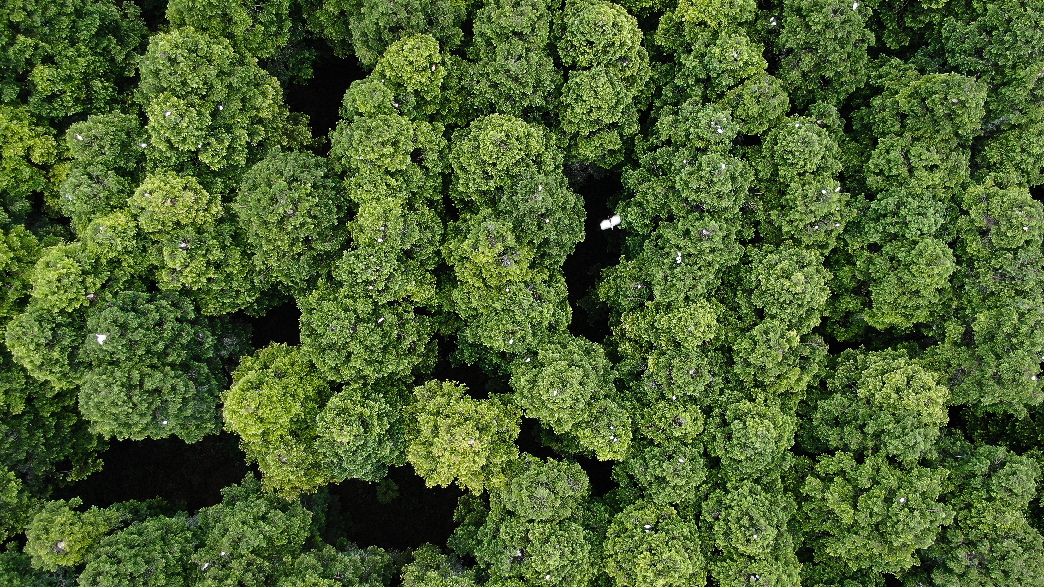
Aerial photo shows egrets resting on top of trees at the Dafeng Milu National Nature Reserve in the city of Yancheng, east China's Jiangsu Province, June 26, 2019. (Xinhua/Li Xiang)
NANJING, July 6 (Xinhua) -- Chinese officials commended the United Nations Educational, Scientific, and Cultural Organization (UNESCO) for its decision to inscribe China's Migratory Bird Sanctuaries along the Coast of the Yellow Sea-Bohai Gulf (Phase I) on the World Heritage List.
The inscription was unanimously supported by all members of the UNESCO World Heritage Committee Friday at a session held in Baku, capital of Azerbaijan.
"To be inscribed on the World Heritage List not only means a great honor, but also more responsibilities. It demonstrates China's firm commitment to ecological conservation," said Cao Lubao, mayor of the city of Yancheng in east China's Jiangsu Province, where the sanctuaries are located.
Cao pledged that they would work to strengthen the protection of the sanctuaries as the natural site will receive stricter supervision from the international community.
Migratory Bird Sanctuaries along the Coast of the Yellow Sea-Bohai Gulf of China are located in the Yellow Sea ecoregion, containing the world's largest continuous mudflat seashore.
It is the central node of the East Asian-Australasian Flyway (EAAF), which is the most threatened migratory flyway worldwide and boasts the largest number of endangered and critically endangered species.
The area has a high level of biodiversity, with about 280 species of fishes and more than 500 species of invertebrates, providing a wide variety of food resources for millions of migratory birds.
Wu Qijiang, director of the office in charge of the nomination of the sanctuaries, said the inscription of the natural site on the World Heritage List showcases China's long-term efforts in ecological protection, but much remains to be done to further conserve and maintain the new world heritage.
"We will work to control marine pollution, raise the local residents' consciousness of environmental protection and promote international exchanges and cooperation," Wu said.



